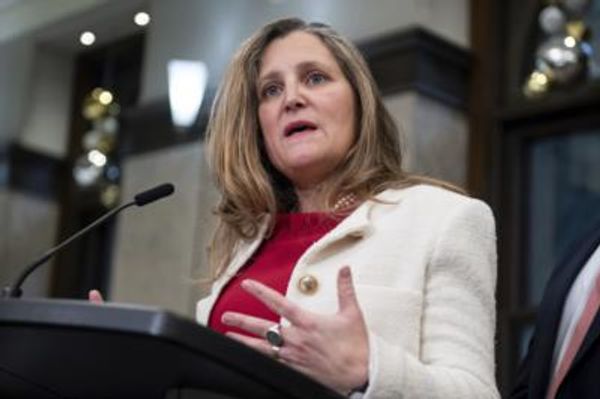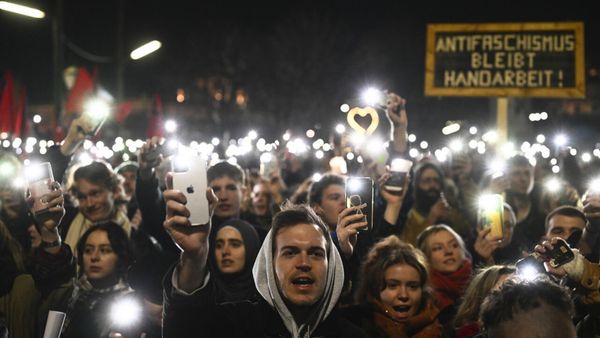With the war in Ukraine now entering its fourth month and cities suffering through ongoing shelling from Russian forces, it can feel as though any investment into the country is truly for the bold.
Russia's attempt to take over parts of the country is being met with fierce resistance from both Ukrainian forces and the local population.
The invasion has inflicted untold damage on the Eastern European nation's infrastructure.
With everything from the Azovstal steel plant to thousands of local hospitals and kindergartens shelled to rubble, some experts estimate that it will take over $600 billion to reconstruct the country to the same level it was at before the war.
But even with new damage is being inflicted every day, both local and foreign investors are confidently putting money into the country's future.
Investment And The War In Ukraine
Sergiy Tsivkach, executive director of the country's promotion office UkraineInvest, told TheStreet that foreign direct investments into Ukraine totaled $10 million in the first quarter of 2022.
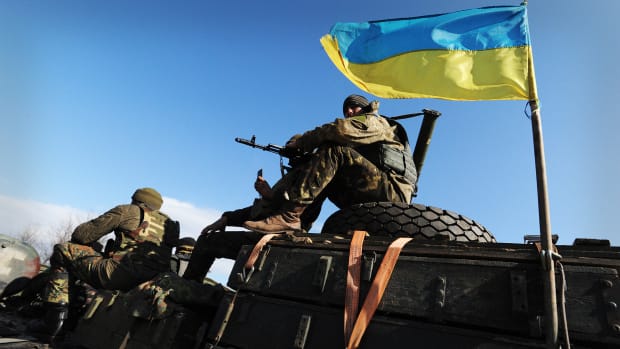
Scott Peterson/Getty Images
"We are currently receiving applications from companies interested in investing in the post-war reconstruction of Ukraine's infrastructure, as well as other related sub-sectors of the economy that will be relevant to the construction industry," he said.
With a GDP of $155.6 billion in 2020, Ukraine had spent years prior to the war trying attract Western investors and attract the flow of capital into the country.
The country's burgeoning IT industry and low product and manufacturing costs would periodically catch the attention of foreign investors, despite longstanding instability in the country's eastern regions that led up to the current invasion.
Right before the war began, FDI stock amounted to $62 billion at the end of 2021.
The manufacturing sector took up 25% while 15% went to trade, 12% went to mining, 9% went to IT and 8% was in real estate, according to numbers provided by Tsivkach.
One in five investments in Ukraine between 2019 and 2020 came from a company headquartered in the U.S.
In 2019, Florida-based electronics producer Jabil put $16 million into opening a manufacturing site in the country's Zakarpattia region.
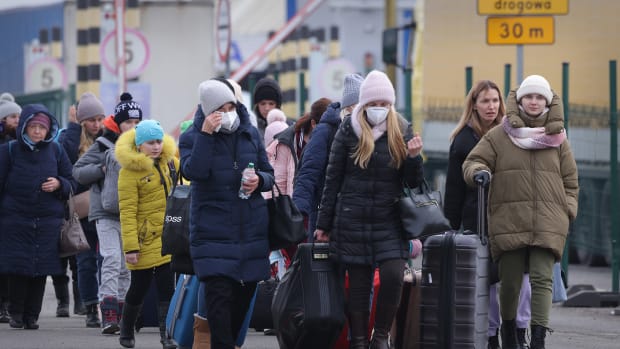
Sean Gallup/Getty Images
Thus far the war has wrought such sweeping destruction that most of the businesses attractive to investors were forced to close or significantly reduce operations.
Humanitarian Aid As Investment
The flow of investment has generally ground to a halt.
One study found that 42% of Americans who have invested in Ukraine have delayed doing so even locally over uncertainty about how Russia's attack on Ukraine.
The questions about how the war would affect the world are still swirling, to say nothing of putting money into the country itself.
Some projections believe that Ukraine's GDP will fall by more than 45% in 2022.
Tsivkach said that, even as the war continues, UkraineInvest had stood behind several projects in liberated areas in April and May.
These include a noodle factory, a factory for the processing of the remains of destroyed buildings, a semiconductor manufacturing project and a block-house building project to make up for housing that was destroyed.
"The best any foreign investor can do during the war is to continue running its business on the territories not affected by active combat, it automatically leads to the stability of our economy and it finds best support from the Government and local authorities," Tsivkach said.
In many ways, current investment in Ukraine takes the form of humanitarian aid from people who have a connection to the country or want to help and see it rebuilt.
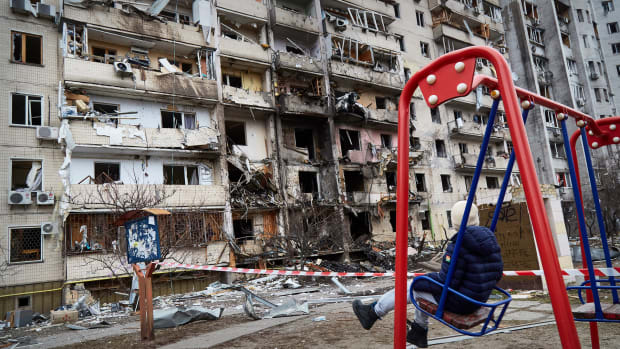
Pierre Crom/Getty Images
Investing in the hopes of seeing profit is simply too risky at a time of active combat.
But as Nova Ukraine nonprofit Director Igor Markov told TheStreet, money given to individuals and local businesses can help the country's economy in the reconstruction period.
That head start could potentially evolve into a successful business in the future.
Construction, Manufacturing And Real Estate
"We currently have a network of over 4,000 volunteers in Ukraine that share local updates with us, deliver aid, and propose new humanitarian projects," Markov said.
"As life returns to normal, we hope to fund reverse evacuation, community-building activities such as technology parks, and other enabling projects," he said.
"Several G7 countries zeroed import taxes for Ukrainian products which makes Ukraine an attractive country for manufacturing. Educated but relatively cheap labor force is also helpful," he said.
Uncertainty around where the war is headed makes Ukraine an extremely risky investment in any traditional sense for the time being.
Anything that is built today can be shelled by Russian forces tomorrow.
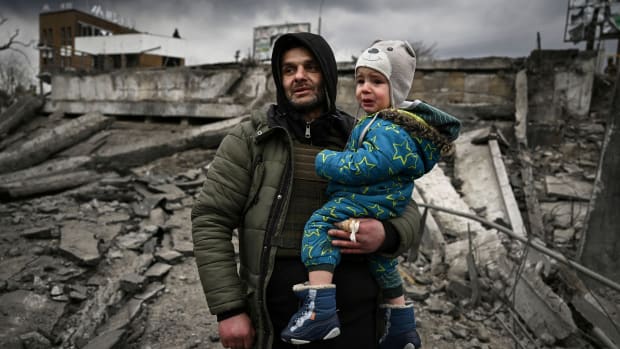
ARIS MESSINIS/AFP via Getty Images
But there are still brave investors looking at Ukraine as an opportunity, whether for emotional reasons or desire to be the first to tap into the country's market after the war.
Some are looking at Ukraine with an unwavering sense of hope for what it can become when the war finally ends.
"Massive aid will soon support the rebuilding of Ukraine, and we see major opportunities in the energy, construction, medical and telecoms sectors," Markov said.
"Without doubt, Ukraine will soon become a new country — renewed physical appearance, more confident, creative and forward-looking labor force, as well as more modern, more effective government trusted by the people."

